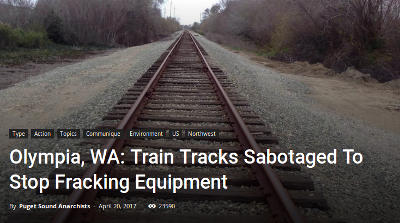We wanted to pass on to this newsletter from the Seneca Lake resisters to fracked gas storage and transport, especially since, due to security measures, they do not generally allow us to forward info about the struggle. They are amazingly organized, smart about the resistance, and committed to winning and to one another.
The Banner, Vol. 1, No. 38 – September 15, 2015
We Are Family
Families work together, play together, dine together, agree and disagree together, share good and bad days together, support one another, and love each other. The family We Are Seneca Lake does all this and more.
We are a family of thousands. Hundreds of us are trained. We have come together 40 times in ten months. Over 500 of us have put our bodies on the line. 334 of us have taken that special ride downtown, earning 400 tickets in all.
This family has it goin’ on!
We are fiercely dedicated and persistent defenders of health, home and community. We protect what we love: the waters, tillable land, sustainable jobs, and clean air of the Finger Lakes and, of course, our families. We say NO to global warming and social injustice, we refuse to allow trespassing corporations to pollute the natural commons we depend on for life and living , and we say YES to renewable energy! That’s our thing. That’s how we roll.
We have accomplished a lot together. Our family continues to grow. Our story, once told locally and then regionally, is now gaining national attention. Our family name is recognized by more and more Americans each day. These Americans are learning why Crestwood’s plan to store fracked gases under the banks of Seneca Lake is a bad idea. We continue to teach.
I am proud to be a member of the We Are Seneca Lake family. And I am proud to have such worthy brothers and sisters as you. Our family name continues to gain great respect due to your ideals, ethics and action. You are awesome!
Together we are unstoppable
— Doug Couchon
About Last Thursday…
The excitement in the air Thursday morning was palpable as the Seneca Lake cavalry rolled. It felt a bit like a reunion. The excitement to get back on the line was evident. First timers and veteran defenders listened carefully to their instructions.
After my second arrest last November, I didn’t think I would need to risk arrest again. Maybe I was naive to think we would have beaten this thing by now. All of the return offenders offered up their reasons for coming back: Judge Berry’s refusal to dismiss the 84 cases, their friends and family still facing charges, the fire at Crestwood earlier this week, a stronger resolve to finish this fight.
Things went as usual with the exception of a crazed pickup driver nearly running down a couple defenders. We were not there long before the police arrived and escorted us off in the paddy wagon. I’ve seen it so many times over the past 8 months. We chatted on our way down to booking like old friends. It was just another day at the gates of Crestwood, but it was so much more. We reached 400 arrests.
On my drive home, I thought about the magnitude of this. On 400 occasions, someone put their body on the line to fight this project. And that is just the tip of the iceberg, the part that we see. Those people went home and told their friends about what they’d done, woke up early on their days off to table at events, canvassed, passed out information, collected signatures on petitions, supported their fellow defenders outside the court house, attended rallies, made donations, wrote letters to their elected officials and made daily phone calls. They are living this battle against Crestwood.
My experience today only reaffirmed what I’ve learned over the last year. This is a family. We have joined together to do something incredible. Four hundred arrests is a remarkable accomplishment. We should pause and celebrate the amount of work that has gone into this: time away from family, early mornings, missed work, freezing toes, sweaty brows. But let us pause for only a minute, because there is so much work to be done. We must continue to foster our connections with each other and the water of Seneca Lake, because the battle against Crestwood is far from over.
—Laura Salamendra
To learn more or join members of DGR NY in getting involved, visit We Are Seneca Lake
 Our Underground Action Calendar lists attacks from as far back as the 1970s, to inspire and serve as a research tool. We include a variety of actions from around the world, some carried out by individuals, some by organized militant groups. Targets range from local earth-destroying construction equipment to networks of oil wells and pipelines. Browsing the list gives a good idea of what can be accomplished with simple acts of monkeywrenching or with persistent campaigns against industrial infrastructure.
Our Underground Action Calendar lists attacks from as far back as the 1970s, to inspire and serve as a research tool. We include a variety of actions from around the world, some carried out by individuals, some by organized militant groups. Targets range from local earth-destroying construction equipment to networks of oil wells and pipelines. Browsing the list gives a good idea of what can be accomplished with simple acts of monkeywrenching or with persistent campaigns against industrial infrastructure. 